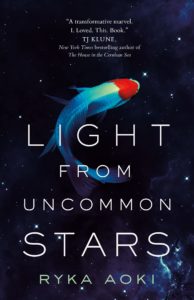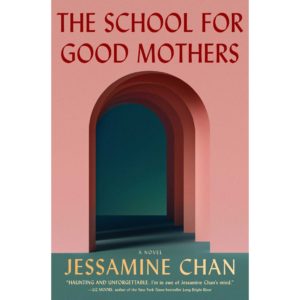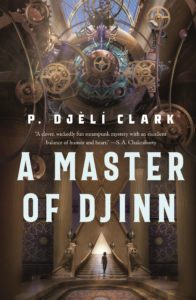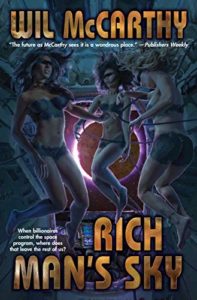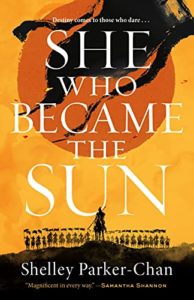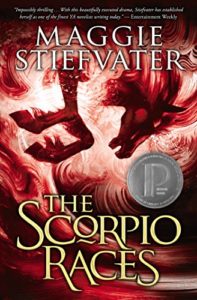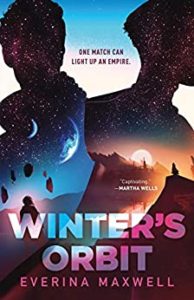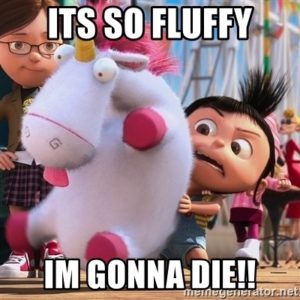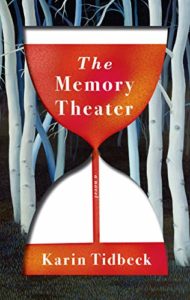My favorite book club meeting of every year is the one were we read the Hugo nominated short stories and novelettes. Here’s my reviews of this year’s crop. Note that the reviews are all FULL SPOILERS. If you don’t want to read them all, but want to read the (IMO) best ones without being spoiled, go read:
“Where Oaken Hearts Do Gather”, by Sarah Pinsker (short story)
“L’Esprit de L’Escalier”, by Catherynne M. Valente (novelette)
“Colors of the Immortal Palette”, by Caroline M. Yoachim (novelette)
Short Stories
“Where Oaken Hearts Do Gather”, by Sarah Pinsker
I’m an absolute sucker for good structure play, and this is fantastic structure play! A story told in the format of a wikipedia entry on the history of a folk song, where the story unfolds as editors comments. It’s a sort of archeological-horror of the Lovecraftian style, meaning that a terrible and supernatural thing happened in the past, and a group of investigators is slowly uncovering just what the heck happened, and end up enmeshed in it themselves. The answers are never spelled out, but the reader can infer every major detail.
Three things I loved:
I grew up as an outcast, and much of my peer group was people I never saw IRL scattered across the very early internet. This reminded me of having that sort of virtual community.
The ambiguity of the song’s lyrics and possible alternate lyrics gave a richness and depth to the narrative and the passage of time that I don’t often see elsewhere.
The fact that the narrative isn’t directly given to the reader, but is instead a number of evocative scenes and clues, which we then stitch into a full story individually, made this story into a sort of puzzle. It is an extremely satisfying feeling to have that puzzle come together as you’re reading.
Loved this story, my favorite of the year, highly recommended!
“Unknown Number”, by Blue Neustifter
I read this when it was first tweeted, and I understand the appeal. It’s the hundredth iteration of a story that’s been on the internet for who-knows how many years, and most people anywhere in social justice circles have read nearly word-for-word versions of this many times.
But it’s not really a story. It’s a way for closeted people to encourage each other to come out, and to be supportive and uplift each other. Which is great! But lots of great things aren’t stories. It’s kinda dumb that this was nominated, and the nominators should examine their life choices.
Speaking of which… I have come to accept that McGuire’s works will be with us for the rest of Hugo history, much like the common cold. I don’t bother to read them.
“The Sin of America”, by Catherynne M. Valente
Valente is a literary virtuoso. Just hands down one of the best writers alive. Everything she does with words is breath-taking. I would recommend this on the strength of her craft alone. Come here, read beautiful things.
The story itself is a little bare in this one, it’s basically The Lottery with a biblical scapegoat take. I’m not sure that matter much, it is a short story after all, and its so masterfully told that it’s hard to be upset by it. But its simplistic nature doesn’t leave one with the deeper feelings Valente’s more subtle and complicated works do.
An interesting aspect of the story is its openness to interpretation. The most straightforward interpretation is “Americans are disgusting awful people who should be ashamed of themselves.” It’s likely that this interpretation is what got it the Hugo nod. But a slightly deeper reading reveals the message of “Hey, you know this thing where we daily summon all the guilt and sins of hundreds of millions of humans and heap it all on one person and revel in their destruction? Maybe that’s fucking awful. Maybe we shouldn’t do that. And spreading that to everyone? That could be even worse! Maybe heaping infinite guilt upon everyone all the time could lead to some truly fucking deranged behavior in the population. This is inhuman and disgusting.”
Of course I was wrong when I thought Emergency Skin was a satire, so maybe not. But it’s hard not to see this as a thinly-veiled indictment of woke purity culture. Recommended by me, at any rate.
“Proof by Induction”, by José Pablo Iriarte
A perfectly serviceable story about coming to peace with losing a distant father. I liked it, and I really liked the strong characterization of a stoic father figure. It didn’t do anything innovative or exceptional, though. I’ve already forgotten half of it in the past week, and a couple months from now I won’t remember it at all. It’s fine, it’s just not special.
“Mr. Death”, by Alix E. Harrow
Like Proof by Induction, a serviceable story about refusing to accept bad things that you can change. Someone who’s terrible as a grim reaper gets to be a guardian angel instead, so we get a happy upbeat ending. Again, a fine story! Better than Induction IMO, though still not astounding. I would normally also forget this one quickly, except for the blatant racism.
It’s pretty jarring. Right in the middle of the story there’s a couple lines of just blatant, undisguised racism. I guess that’s why the story got a Hugo nod. And I kinda understand putting that sort of thing in a story, if you want a Hugo. It needs to be in there to even be considered by today’s nominators. But, Jesus, that was uncomfortable. This is gonna age like Jerry Lewis in Breakfast at Tiffany’s. It’s an embarrassment.
Novelettes
“Unseelie Brothers, Ltd.”, by Fran Wilde
Again, a fine story about stuff. For quite a while I kept wondering “Why do I care about any of these people and their quest to buy very expensive dresses?” But I persevered because it was a Hugo nominee, and thus there had to be something interesting here. Plus the title lets us know the fae will be involved in some way. :)
And yeah, it turns into an interesting story. It feels like the author lost interest after a while and rushed the ending so she could be done with it. Kinda ridiculous to think a fae wouldn’t read a contract, their legalism is one of the most famous things about them. But the story needed to end and it had to be a happy ending, so there we go. I would’ve preferred something more contemplative, but this works. Whimsical and kinda fun.
“That Story Isn’t the Story”, by John Wiswell
Ah, now here’s something with a bit more meat! A great exploration of surviving abuse, and what it takes to break out of a victim mentality. It demonstrates the terror and control that an effective abuser employs, and it shows how ultimately it’s all psychological manipulation. Behind the bared teeth there is a tiger made of paper, with only the power you grant him with your fear.
It’s enriching and uplifting in a way I like, by showing someone persevering and overcoming their fears. Clawing back control through struggle and strength of character. And along the way, he even helps others to break free too. It’s great. :)
Also, this is one of those maybe-it’s-real maybe-it’s-not stories. Our narrator may be very deluded as to the nature of reality. It’s awesome how he discovers in the course of the story that his supernatural thinking has given power to someone without any actual powers. We’re left to wonder if ANY of the supernatural things we’ve seen are real, or if they’re all entirely in the narrator’s head. We never seen independent confirmation of anything beyond the mundane in the story. I prefer the reading that makes Mr Bird an actual vampire, but the story is intentionally ambivalent, and that works very well.
It feels a bit rough around the edges. The story isn’t the polished masterwork that someone like Valente writes. But still, Recommended.
“O2 Arena”, by Oghenechovwe Donald Ekpeki
Wow.
Just, wow.
This is the literary equivalent of an eight-year-old grabbing a crayon and scribbling madly. It’s… it’s bad. There’s no other way to put it. The prose is crap, the execution is crap, the plot is lifted wholesale from popular works of the last decade, it’s simplistic…
I mean, I understand writing this sort of thing. Every single writer wrote this sort of thing. We all had to start somewhere. Most of us wrote this sort of thing when we were tweens, but some people are late bloomers, and there’s nothing wrong with that. Everyone needs to scribble with a crayon to find out how crayons work and what you can do with the medium, after all. And there’s joy in scribbling.
But for it to get a Hugo nomination? That’s beyond embarrassing. It’s actively insulting. This is the sort of thing that makes outside observers think “I am justified in thinking genre is childish crap.” It’s harmful to the Hugo’s themselves for this to get on the short list. It patronizing and infantilizing to the author. Now he’ll have to live this down for the rest of his life. I can’t even.
“L’Esprit de L’Escalier”, by Catherynne M. Valente
Another work from Valente that leaves me awe-struck. I cannot get over how good she is. Orpheus & Eurydice in the modern day, but still fully gods. They made it back to the living world, but she’s still a rotting corpse. It tears your heart out slowly and subtly. It’s about a relationship dissolving as two people grow apart, and neither one has the introspective ability or communication skills or stop this. It’s about two extremely attractive people that were drawn together due to that attraction, but who had nothing else binding them together and were never a good pairing, and how they disintegrated when that attraction is no longer enough. It’s about aging and struggling to deny the entropy of life. It’s probably about even more things, depending on the reader. It’s one of those works that speaks to every reader in a slightly different way, because it encompasses such deep emotions without telling you exactly how and what to feel.
I will remember this story for a long time, one of the best I’ve read in years. Highly Recommended.
“Colors of the Immortal Palette”, by Caroline M. Yoachim
Also a beautiful piece, about artistic ambition and the unfairness of chaotic social realities. Mixed in is a contemplation on aging, and how we trade our life for our desires. This is one that ended up sticking with me long after I read it, more than I expected it to. That’s always a good sign, and makes me appreciate things even more. It’s particularly striking that the inherent unfairness of circumstance is such a big theme in this, because in almost any other year I think this would easily leave all competitors for the Hugo in the dust. The unfairness of Valente’s “L’Esprit” being published the same year feels like exactly the same spiteful hand of fate that would be found within the story, manifesting in real life. But tastes vary, I’m notoriously out of touch with the average Hugo voter, and perhaps the voters will prefer “Colors” overall. Again, Highly Recommended.
“Bots of the Lost Ark”, by Suzanne Palmer
This is a sequel to Palmer’s 2017 story “The Secret Life of Bots.” I absolutely adored the 2017 story. Go read it, it won the Hugo that year, and rightly so. Afterwards, you can read this story if you want to. This one is fun, it’s a sequel that delivers in all the ways you’d expect a sequel to — we see our favorite characters again, the feel and style is the same, and it satisfies the desire to see more. But like almost all sequels, it doesn’t do much else.
In our book club, everyone who read the original story really liked this. It feels so good to see Bot 9 again. Most of those who had not read the original (ie: members that joined after 2018) didn’t really like it. It leans strongly on nostalgia, and without that, it’s nice but unexceptional. So, read it if you want more Bot 9. :) But pass otherwise.
